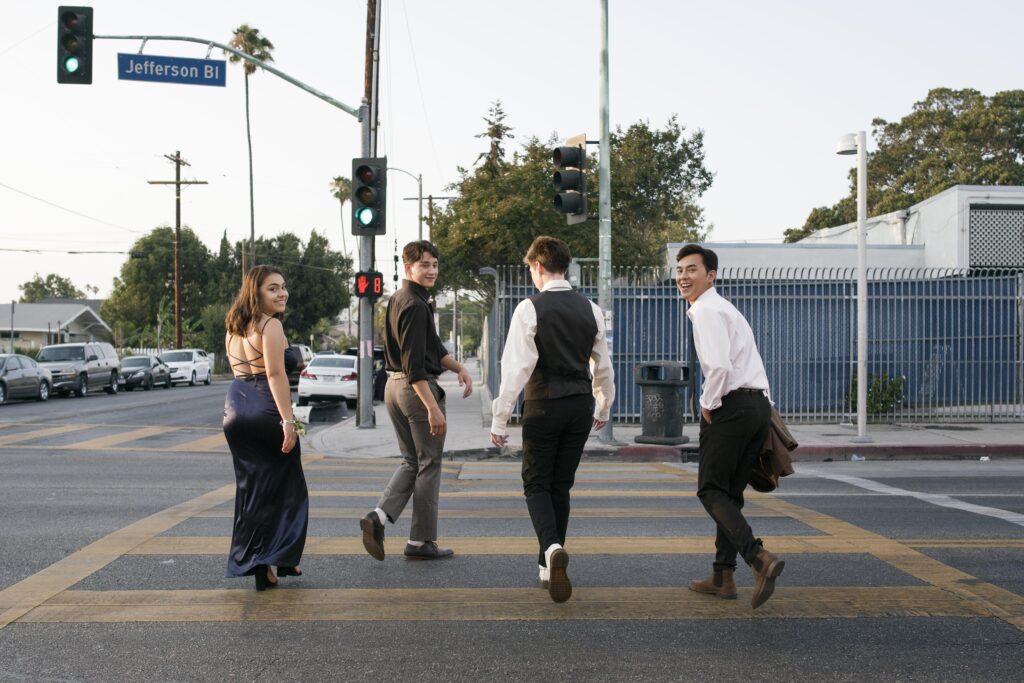Over the past several years, there has been an increase in theft cases in the state of California. The penalties for each type of theft differ depending on the offense. This article explores the nuances of California’s robbery laws.
What is the definition of robbery (211 pc)?
Robbery is theft under the threat of fear and/or use of force. The victim must be present at the scene of the crime because the crime requires that the robber instill fear or use force to take the item directly from the victim. To instill fear means to use a verbal threat or to use an item that can inflict harm.
The victim’s property must be of a personal nature in order for the victim to be robbed. Personal items include purses, wallets, backpacks, jewelry, etc. A non-personal item is the theft of a car which can be considered to be carjacking.
An example of robbery.
The victim is walking down a street with a backpack slung over his back. Suddenly, the backpack is yanked from his arm. The victim is about to run after the robber to take his backpack back, but the robber threatens to harm the victim if he steps near the robber. The victim backs away and calls the police. The victim in this situation has been robbed because:
- The victim’s personal property was taken.
- The robber forcefully took the property from the victim.
- The victim was threatened by the robber.
While this example includes both fear and force, either is required to be considered robbery if all of the other qualifiers are met.
What is an aggravating factor?
Aggravating factors add penalties during sentencing because an action taken during the crime aggravated the situation.
Aggravating factors include:
- The location of the robbery.
- Physically harming the victim during the robbery.
- Working with others to commit the crime.
- Use of a weapon during the robbery.
What is the difference between robbery and burglary?
Burglary, as defined under PC 458-564, is when a person intentionally enters a building, dwelling, room, or space that is not intended for public use to commit larceny – the theft of personal property. The law goes into more detail about what is considered to be a building under this law, but for the purpose of explaining the difference between robbery and burglary, we will focus on the way in which the theft is committed.
A burglary (459 pc) is committed without threatening the victim when taking personal property. It also doesn’t require force. If a burglar were to do these things, they would be committing a robbery. While both crimes require taking personal property that does not belong to the taker, the lack of force and threat of fear is one of the ways to determine whether the crime is a burglary or a robbery.
Another aspect that differentiates those two crimes is that a robbery requires taking personal property from one’s person, but a burglary is theft of personal property from a place, such as an office building.
What are the penalties for robbery in California?
Robbery is considered to be a felony. Under PC 213, the penalty for a robbery depends on whether there were aggravating factors.
First Degree Robbery requires that the robber acts with at least one other individual to commit the robbery within an inhabited place, such as a house or a trailer, or a specified location, such as at an ATM machine. The punishment is up to nine years in state prison. The crime is also considered to be a strike offense.
This refers to California’s Three Strikes Law where robbery is one of the crimes that, when combined with other strike offenses, can only lead to a prison sentence, potentially for life. If this is the first strike offense, the judge may grant the robber probation which comes with certain restrictions and requirements. In addition, the robber may be required to pay restitution to the victim, depending on the damages caused by the robber.
Second Degree Robbery does not use a weapon or include aggravating factors. The punishment is up to five years in state prison. Aside from the lesser sentence, the penalty is similar to a First Degree Robbery penalty. Second Degree Robbery is considered to be a strike offense, the robber may need to pay restitution, and there is the potential for probation.
What are some defenses to robbery?
Not every case is clean-cut. The following are some of the defenses a defense attorney can make for someone who is charged with robbery.
Mistaken Identity – It is not uncommon for witnesses to confuse two people apart. If you are mistakenly charged with robbery, your defense attorney can claim that the police have mistakenly identified you as the robber.
Taking something you thought was yours – Let’s say that you are at a roller rink and put down your backpack in the corner of the room so that you don’t have to pay for a locker. When you finish your session, you return to the corner only to find that your backpack is missing. However, you see someone with the same backpack walking away. You run up to them, shouting, “Hey”, to get their attention. They don’t turn around. You decide to grab the backpack from them and are successful in retrieving your backpack. It is then that you realize that this is not your backpack.
If this case was brought to court, your defense would be that you had acted in good faith when taking the backpack, because you believed that it was yours. You were not intending to rob the other individual.
No fear or force during theft – If there is no force or an incitement of fear, then it can be argued that the crime committed was another form of theft.
What are some related offenses?
In this article, we’ve mentioned some of the other crimes related to robbery. Depending on the events that took place when the crime was committed, it is possible for the defense to claim that a crime other than robbery was committed. Some of these crimes include carjacking, larceny, theft, and burglary.
Charged with robbery?
You might feel scared and in need of clarification if you are facing a robbery in Bakersfield. Our skilled Bakersfield robbery lawyer can help you through this difficult time. We can help by having an airtight defense to give you a fair hearing. Contact us today to learn.










